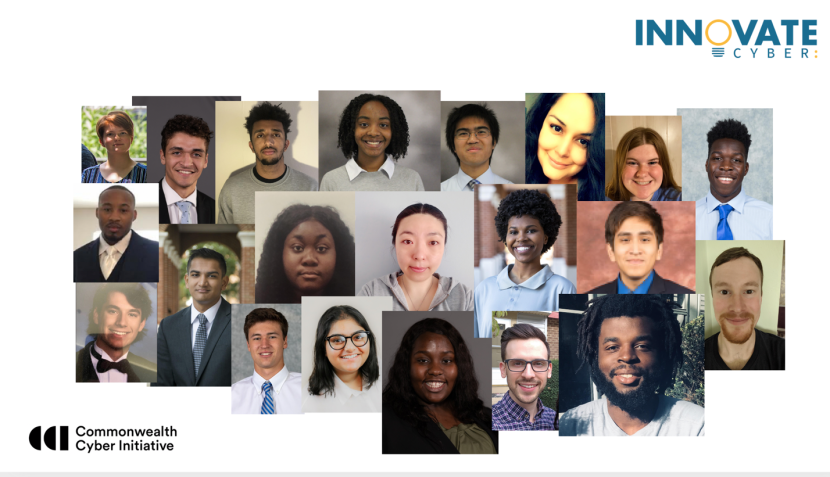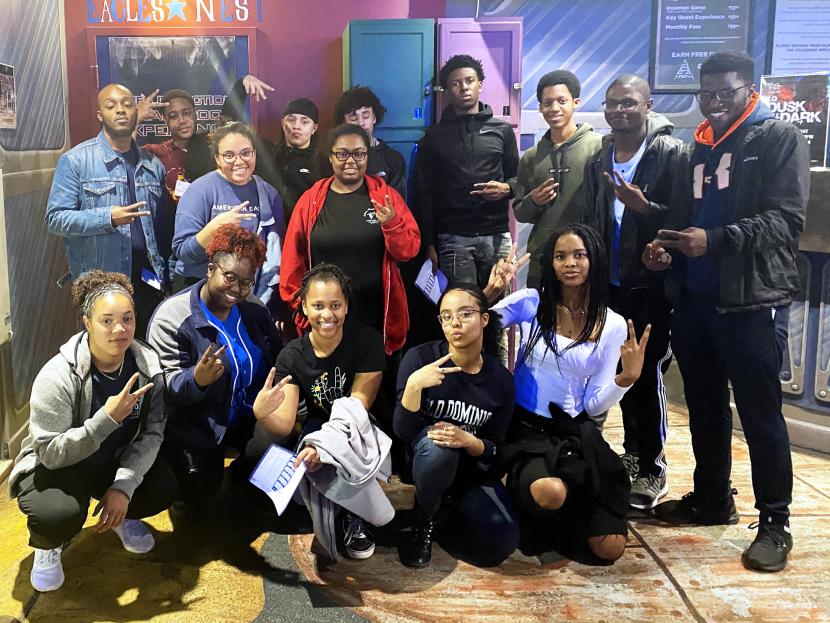Jim Leathrum
By Sherry DiBari
Old Dominion University students in Jim Leathrum's simulation software design course usually simulate computer networks or digital circuits for their semester group project.
This semester they are doing something different - and appropriate for the times.
The 13 juniors, split into three groups, are developing a simulation of the spread of the coronavirus. The goal is to study the impact of reducing group meeting sizes and working from home.
In the class, students learn to design and apply software solutions to simulation.
"This gives them a lot more freedom than utilizing a pre-existing tool would," Leathrum said. "On completion, students are capable of developing new software tools or to directly implement simulations in software."
Leathrum, an associate professor in computational modeling and simulation engineering, got the idea from a Washington Post article, "Why outbreaks like coronavirus spread exponentially, and how to 'flatten the curve. 'The story offered simple animations to illustrate how COVID-19 spreads.
"I figured my students could do a better job," Leathrum said. "In particular, their simulation just had random movement of 'people' with no 'intelligence.' Their only variation was that 'people stay still' and only become infected if a randomly moving person collides with them."
Providing intelligence to the people - also called agents - allows them to model behaviors, such as social distancing and working from home, in an effort to curb exposure to COVID-19.
The model could also be modified to include other factors, such as the impact of vaccinations or people's ages.
"By defining individual behaviors of agents and observing how they interact within their environment (including other people they come into contact with), we can observe the behavior of the system as a whole, in this case society," Leathrum said.
Leathrum explained that they are basically building a simulation to allow them to ask "what-if" questions, and in this manner, they can study the impact of the disease.
The students are using a modified SEIR model (susceptible, exposed, infected and resistant) that allows them to "vary parameters, such as the probability of getting infected when in proximity of an infected person, duration time a person has the disease but does not exhibit symptoms, the illness duration and the probability of death," Leathrum said.
With this model, they can then study the impact of social distancing strategies such as limiting crowds to 10. "Why not 20? Or would five be better?" Leathrum said.
The project will enable "students to model the movement of people in environments like home, workplace or school. By giving the people basic behaviors as to how they move through society, we can better observe how the disease spreads," Leathrum said. "Given much more time, this movement model could be defined based on cell phone data tracking general movement of people."
Students have been enthusiastic, recently asking a "continual stream of questions that took up the whole class time," Leathrum said.
They are also looking to go well beyond the original assignment and considering adapting the simulation to be modified by medical professionals. Leathrum said as students learn to use parallel processing, the simulation could run faster, allowing them to "simulate large populations, such as all the people in New York City."
"I figure when they are redefining the project in significantly more meaningful ways, forcing me to reel them back in so that they can have success in the limited time available, that is a real sign of enthusiasm," Leathrum said.
Related News Stories
INNOVATE Cyber Challenge: ODU Takes the Lead Toward Preparing the Commonwealth's Cybersecurity Workforce
Twenty-four undergraduates. Six educational institutions. Multiple solutions. (More)
Inaugural Early Engineering Experience Aims to Attract Minority Students
Rafael Landaeta, associate dean of the Batten College of Engineering and Technology, plans to continue the event annually. (More)
VMASC Scientist Hosts Weekly Stress-Free Art Workshops
The aim of VMASC's Bratislav Cvijetić is to reach out to students and families at home during pandemic. (More)







